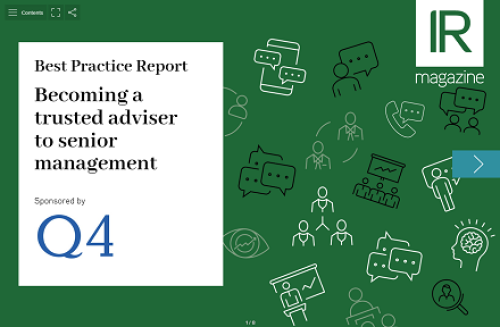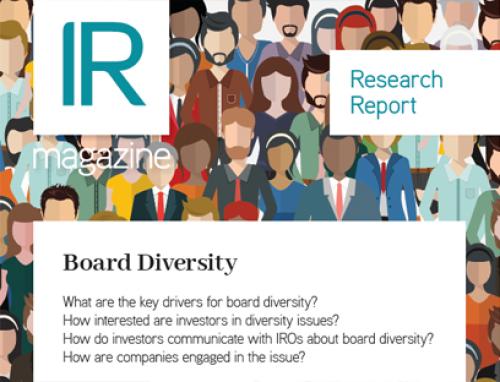During the last few years, a number of award-winning and industry-leading IR professionals have made the move from public to private companies. John Cummings left Salesforce for Celonis. Dennis Walsh left Zillow Group for Postmates. Anil Gupta left Facebook for Coinbase. And Isabelle Adjahi joined Lion Electric, shortly after leaving her position at WSP.
For some, joining a pre-IPO company represents the opportunity to establish a brand new IR function in their own image and embed its value early with senior management. For others, it’s the more immediate appeal of working on an IPO, listing or other large transaction that may serve as a career highlight. There’s risk associated, too: some pre-IPO companies can transition to listed status seamlessly, while others are exposed when confronted with the scrutiny of the public markets. For many of these IR professionals, however, the risk outweighs the reward.
For Cummings, who joined Celonis as its senior vice president of investor relations and corporate development in September 2020, the move to a private company had been on the cards for some time. After nine award-winning years at Salesforce – during his tenure, the company won five IR Magazine Awards, while Cummings personally won the best large-cap IRO award in 2018 – he was excited by the prospect of helping to build something from an earlier stage.
‘There are a number of different challenges that come up at a late-stage private company,’ he explains. ‘For me, part of the calculus was the ability to learn new things. During my time with Salesforce, I really helped the company grow, not just in IR but also as a member of the CFO’s executive team. I spent a lot of time working with the board on ESG disclosures. But now there’s a desire to be part of building the processes and systems of the firm and bringing a lot of my skills to that.’
Celonis’ CFO Guido Torrini is on the record as saying that the company may pursue an IPO in future, having closed a $250 mn Series C round of funding in 2019. Cummings says going public would require work before the company was ready – by shifting the calendar of its annual reporting, for instance. But regardless, his role at Celonis today bears more resemblance to the role of a public company IRO than many may think.
Building the investor story
‘The expectation is to help build the investor story for the company, help to define it and tell it,’ Cummings says.
‘There are a lot of interesting investors, including mutual funds like Fidelity, Wellington and T Rowe Price, that are investing in late-stage private firms now. These are names that were top of the roster at Salesforce and they are interesting potential Series D investors.’
Celonis has also participated in a number of banking conferences since Cummings joined, including Wells Fargo and Barclays events. ‘You’re seeing private company tracks emerge at all those conferences because the markets are looking to invest in late-stage private,’ Cummings adds.
This is important to him because the Celonis story is quite a complicated one – ‘not as complicated as Palantir, but not too far off,’ he says. Cummings believes an artificial intelligence-enhanced process-mining software company like Celonis could play an influential role in the future of the technology sector – but it’s peerless in the public markets. By spending time up front to ensure the story is understood, Cummings believes it will help the company if it does enter the public markets in the future.
And while his contacts book and expertise are clearly reaping benefits, he says the conversations he has with investors now differ from those he had when he was at Salesforce. ‘It’s not as if people are watching my stock trade and that’s why the phone is ringing,’ he explains. ‘They don’t need to know what’s happening with Celonis right now. The conversations are much more thematic, much more strategic and a little more open-ended.’
This is an extract of an article that was published in the Spring 2021 issue of IR Magazine. Click here to read the full article.










